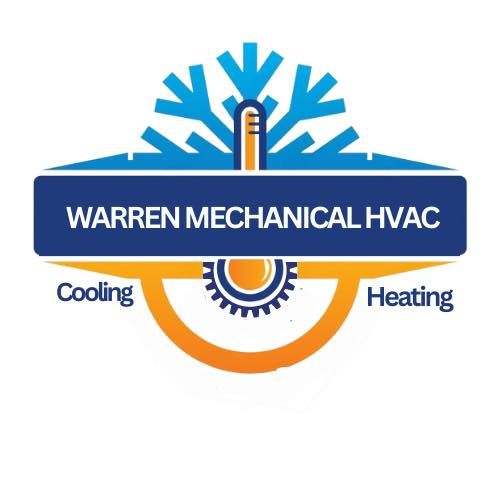Introduction
When the scorching heat of summer hits, your air conditioner becomes a vital part of your comfort. But have you ever wondered what makes that cool air possible? Enter refrigerants—the unsung heroes of the AC repair paige cooling world. Understanding different types of refrigerants used in air conditioners is essential not only for HVAC professionals but also for homeowners looking to maintain or upgrade their systems.
This comprehensive guide will dive deep into the various refrigerants available, their properties, their effects on the environment, and how they compare against each other. With proper knowledge, you can make informed decisions about your HVAC system and even find reliable AC repair near me services when necessary.
Understanding Different Types of Refrigerants Used in Air Conditioners
Refrigerants are substances used in cooling systems that absorb heat from the indoor environment and release it outside. The cycle involves evaporation, compression, condensation, and expansion—a fascinating mechanism that keeps us comfortable during hot weather. Over the years, various types of refrigerants have been developed, each with its unique properties.
1. What Are Refrigerants?
Refrigerants are chemical compounds that change from a gas to a liquid and back again at low temperatures. This phase change is critical for absorbing and releasing heat as needed within an AC unit.
Types of Refrigerants:
- Chlorofluorocarbons (CFCs) Hydrochlorofluorocarbons (HCFCs) Hydrofluorocarbons (HFCs) Natural Refrigerants
Let’s explore these categories further.
2. Chlorofluorocarbons (CFCs)
CFCs were once widely used in refrigeration systems due to their stability and effectiveness. However, they are now banned in many countries because they deplete the ozone layer.
Pros and Cons of CFCs
Pros:
- High efficiency Non-flammable
Cons:
- Ozone-depleting potential Contributes to global warming
3. Hydrochlorofluorocarbons (HCFCs)
HCFCs emerged as a transitional alternative to CFCs. While they're less harmful to the ozone layer than CFCs, they still pose environmental risks.
Pros and Cons of HCFCs
Pros:
- Lower ozone depletion potential compared to CFCs
Cons:
- Still contributes to global warming Phasing out under international agreements
4. Hydrofluorocarbons (HFCs)
HFCs have become popular due to their efficiency and minimal impact on the ozone layer. However, they're potent greenhouse gases.
Pros and Cons of HFCs
Pros:

- No ozone depletion potential High energy efficiency
Cons:
- Significant global warming potential Regulation under various climate agreements
5. Natural Refrigerants
Natural refrigerants include substances like ammonia, carbon dioxide (CO2), and hydrocarbons like propane and isobutane. These options are gaining popularity due to their low environmental impact.
Pros and Cons of Natural Refrigerants
Pros:
- Minimal environmental impact Abundant availability
Cons:
- Safety concerns with flammability and toxicity Limited application range
6. The Role of Global Regulations on Refrigerant Use
In recent years, international regulations such as the Montreal Protocol have significantly impacted refrigerant choices in HVAC systems globally. Understanding these regulations can help you navigate your options better.
Comparative Analysis of Different Types of Refrigerants
| Type | Ozone Depletion Potential | Global Warming Potential | Energy Efficiency | |--------------------|--------------------------|-------------------------|-------------------| | CFC | High | Very High | Moderate | | HCFC | Moderate | High | High | | HFC | None | High | Very High | | Natural Refrigerants| None | Low | Varies |
7. Choosing the Right Refrigerant for Your AC System
When selecting or retrofitting an air conditioning system, several factors come into play:
Environmental impact Efficiency rating Compatibility with existing equipment7.A Assessing Environmental Impact
Are you concerned about your carbon footprint? Opting for natural refrigerants may be a more sustainable choice.
7.B Evaluating Efficiency Ratings
Efficiency ratings can tell you how effectively an air conditioner will perform over time—look for Energy Star ratings!
7.C Compatibility with Existing Equipment
Not all refrigerants work well with every AC unit; compatibility is crucial for optimal performance.
8. Common Questions About Refrigerant Use in Air Conditioners
Here are some frequently asked questions regarding refrigerant use:
8.A What Happens If My AC Runs Low on Refrigerant?
If your AC runs low on refrigerant, it won't cool effectively—leading to higher energy bills and stress on components that might require expensive repairs down the line.
8.B Can I Refill My Own AC Unit?
While some people attempt DIY refills using online tutorials, it's best left to professionals like those at Warren Mechanical HVAC who understand the complexities involved.
8.C How Often Should I Have My AC Serviced?
A good rule of thumb is once per year before peak usage seasons—do not forget to search for “AC repair near me” if anything seems off!
8.D Are There Alternatives to Traditional Refrigerants?
Yes! As mentioned earlier, natural refrigerants offer viable alternatives that are both effective and environmentally friendly.
8.E What's the Future Outlook for Refrigerants?
As technology advances and regulations tighten up further, we can expect a shift toward more eco-friendly options without sacrificing efficiency.
8.F Do All Air Conditioners Use Refrigerant?
Almost all modern air conditioning units rely on some form of refrigerant; however, passive cooling systems do exist but are much less common.
Conclusion
Understanding different types of refrigerants used in air conditioners may seem daunting at first glance—but it’s crucial knowledge for making informed decisions about your HVAC needs while minimizing environmental impact as much as possible! Whether you're considering upgrading your unit or looking for reliable service providers like Warren Mechanical HVAC or searching for "AC repair near me," understanding these aspects will enable you to choose wisely!
With this guide in hand, you'll be well-equipped to navigate through various options available while ensuring maximum comfort at home without compromising our planet's health!
